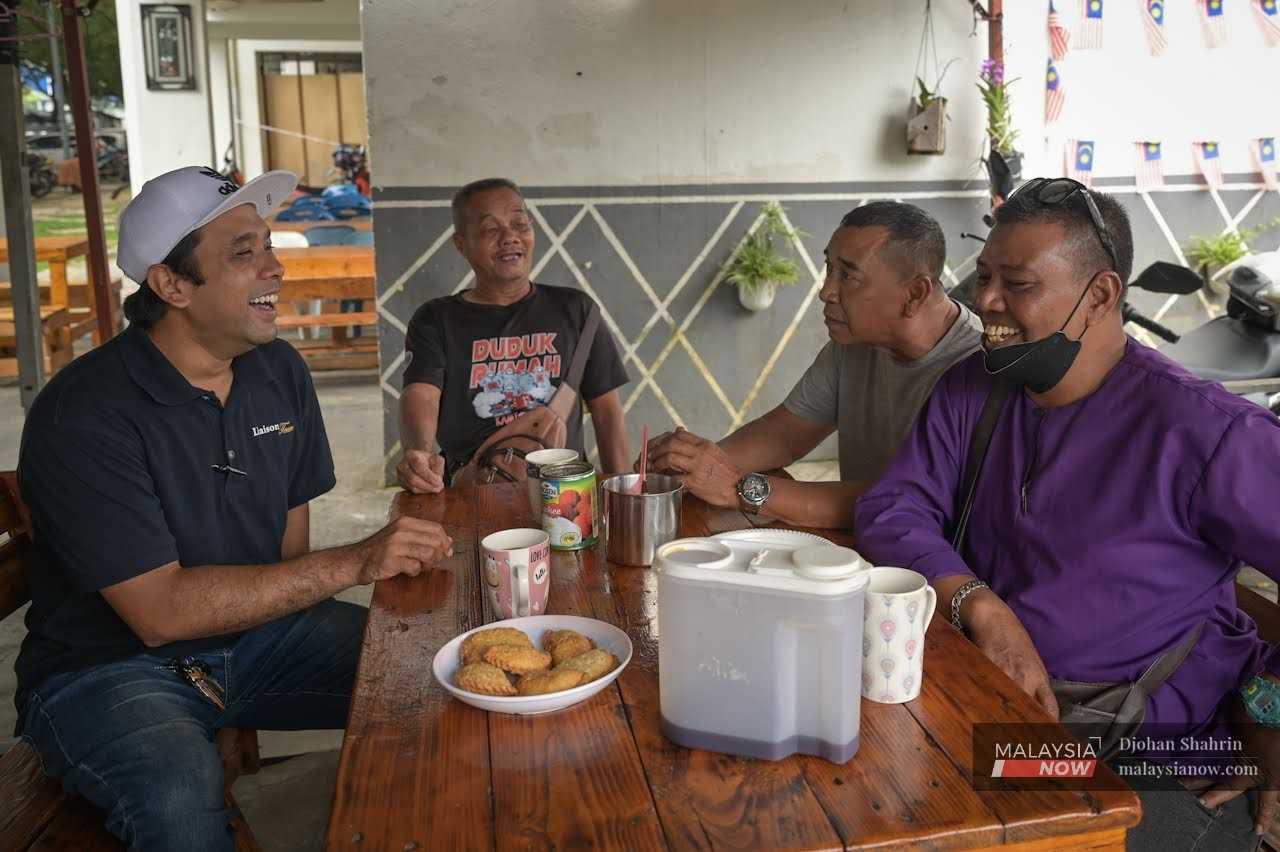In Lembah Pantai, voters look for the 'human touch'
They say they have no issues with their incumbent but will decide on who to support once all of the candidates are named.
Just In
For years, Baharudin Md Som has run his family business at the Kerinchi low-cost flats in Lembah Pantai, Kuala Lumpur.
There, at his small but busy food stall, he chats with everyone, from customers to politicians and those who have represented the constituency throughout the years.
His eatery, a recognised neighbourhood haunt, is always bustling with people who come for a meal – as well as their daily dose of gossip about current affairs.
These days, their conversation revolves around the next big item on the national agenda: the 15th general election (GE15), to be held on Nov 19.
Talk is friendly, for the most part, with the majority of customers expressing no major beefs with their incumbent MP.
"We have no problems with Fahmi Fadzil, or any other party for that matter," Baharudin said.
"We are all friends. When we ask for help, help comes quickly.
"But when the time comes for candidates to be named, we will decide who to choose."

Fahmi, of PKR, has held the Lembah Pantai seat since 2018.
He took over the seat from fellow PKR member Nurul Izzah Anwar, who held it for two terms, defeating Shahrizat Abdul Jalil and Raja Nong Chik Zainal Abidin from Barisan Nasional (BN).
Prior to that, BN had successfully defended the urban seat since 1984.
Human touch
While Raja Nong Chik marked his second defeat to a PKR candidate at the 14th general election (GE14), he is spoken of fondly by many in the Kerinchi flats area.
"No one can match his service record," Baharudin said.
"Even though he wasn't elected as an MP, he still worked to serve the people here without splitting hairs."
A flat resident meanwhile recalled how Raja Nong Chik, a former federal territories minister, came to distribute aid to every household during the total lockdown imposed in the area at the height of the Covid-19 pandemic.
Conversations with other residents found that by and large, it was acts like this – the so-called human touch of MP to constituents – that had the biggest impact.
While representatives could orate on both physical and virtual platforms, abstract concepts appeared to have less of an effect on the residents who said they wanted someone who could help them address their problems.
Speaking to MalaysiaNow, Baharudin reiterated that he had no complaints about Fahmi.
"But I personally prefer Lembah Pantai Umno chief Ramlan Askolani," he said.
"He always picks up the phone when people call him. Some representatives won't answer if it's a number they don't know.
"Fahmi helps," he added. "But we are more comfortable with Ramlan."
Community over politics
While such differences in view are a dime a dozen, Muhammad Azim Abd Ghani, another resident at the Kerinchi flats, said that as a community, they always tried to put their relationship as neighbours above political alignments.
"There used to be fights over party differences," he recalled.
"But in my opinion, that shouldn't be the case. We all live together in the same block. If we are in need, our neighbours are the first to come to our aid."
Now, even activities like putting up political flags are carefully assigned according to sections to avoid any potential trouble.
Mohd Awang Idris, a psychologist at Universiti Malaya, said the relationship between MPs and voters was linked to the theory of reciprocity.
"Human relations are theoretically based on the barter system," he said.
"The same is true of representatives. Individuals who are representatives of the people need to give something of equal value as a lead to the votes that have been given to them."
Adding that this was true of both Asian and Western societies, he said it was perhaps more obvious in Asian culture due to the stronger role of emotional factors in the collective society.
But questions also arise about the "warlord" culture that might arise if voters choose based on the acts of charity handed down to them by their representatives, who themselves might face problems of integrity.
Awang said this was related to something known as the "in-group bias" where the individual in question might only be able to win in the existing area.
"That individual will not care about reports in the media or vilification by outsiders because he only has to focus on his own 'in-group'. But if he competes elsewhere, he will probably lose.
"In his own area, negative information about elected representatives who have the human touch despite being involved in integrity problems may be filtered out and not enter the minds of his voters," he said.
Subscribe to our newsletter
To be updated with all the latest news and analyses daily.
